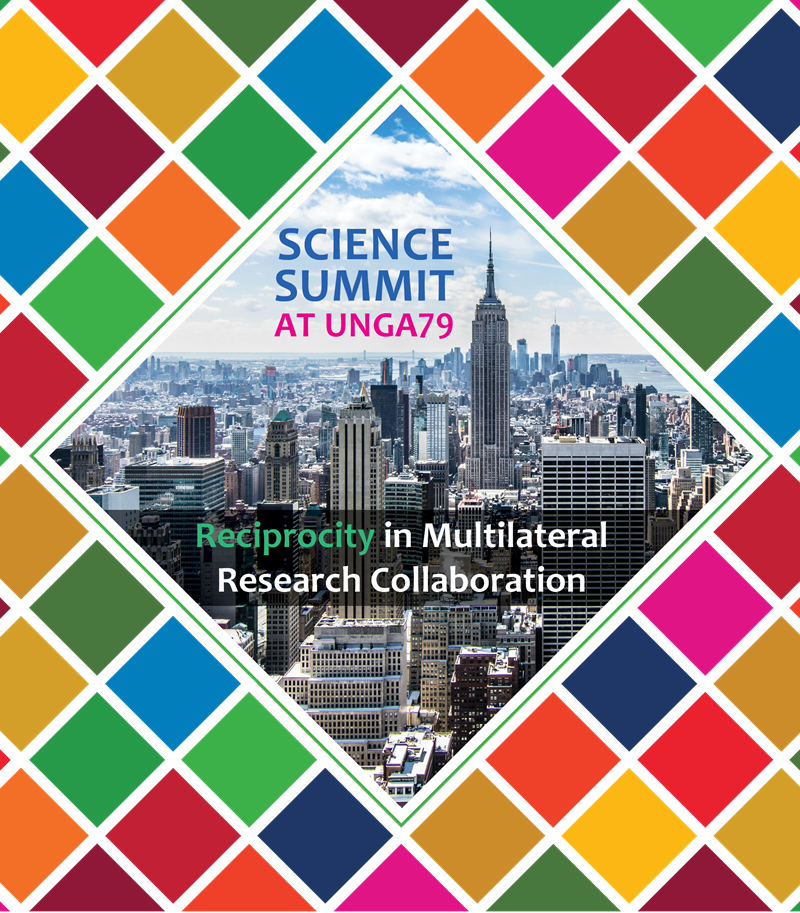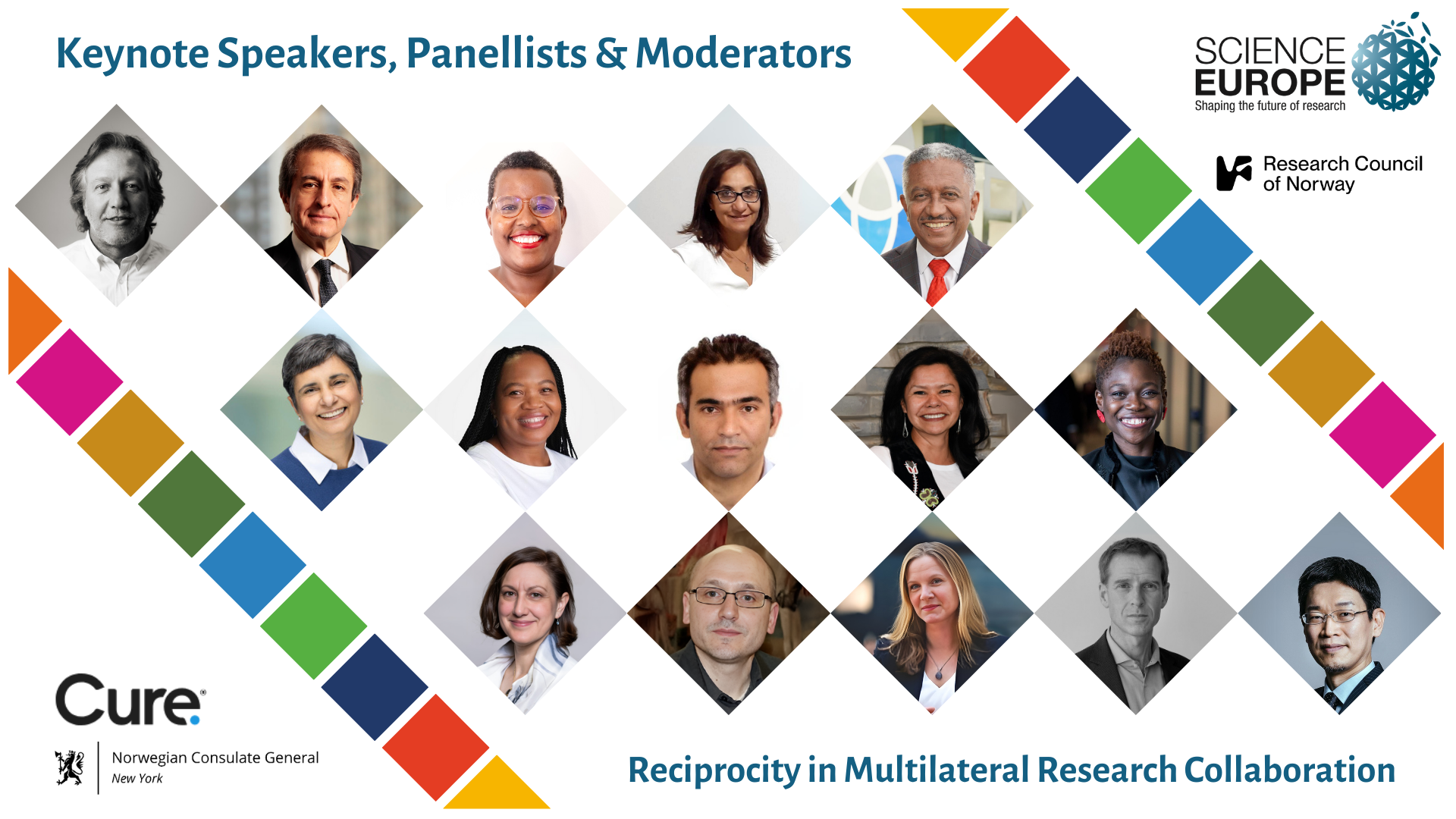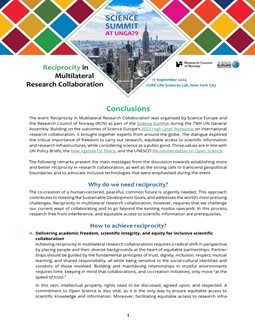
-
Share on
Reciprocity in Multilateral Research Collaboration
Event at the Science Summit during the 79th UN General Assembly
The 9th edition of the Science Summit was organised by ISC Intelligence in Science and partners, around the 79th United Nations General Assembly (UNGA79) from 10 to 27 September 2024. The central theme of the summit was the role and contribution of science in achieving the UN Sustainable Development Goals. It examined what enabling policy, regulatory and financial environments are needed to implement and sustain the science mechanisms required to support genuinely global scientific collaborations across continents, nations and themes.
About the Event
International co-operation in research and innovation is crucial for advancing the frontiers of knowledge and innovation, as well as maximising their economic and societal impact. As highlighted in the 2024 R&I Informal Ministerial meeting, it is also of geopolitical and strategic importance and contributes to provide potential solutions to challenges such as climate change, health, and food safety. Research collaborations contribute to a more open and peaceful world.
Science Europe and the Research Council of Norway (RCN) organised an event on 17 September 2024 during the Science Summit to explore how reciprocal and equitable scientific partnerships can build mutual trust and co-operation – within and outside the lab. This event built on Science Europe’s 2023 High Level Workshop, which aimed to promote dialogue on the conditions and policies for boosting international scientific collaboration between Europe, Africa, Latin America, and the Caribbean. Based on its outcomes and the resulting statement, Science Europe and RCN brought together partners from the Global South and Global North.
In line with the UN Policy briefs and the New Agenda for Peace, and the UNESCO Recommendation on Open Science, Science Europe seeks to support international science co-operation based on reciprocity, inclusion and that benefits all actors involved. This event underlined cross-cutting issues, such as the critical importance of Open Science, Diamond Open Access, and safeguarding of knowledge security. Science Europe’s dedication to ensuring free, unrestricted access to science resonates with the broader goals of international co-operation, as well as with the advancement of science for the public good.
Objectives
To achieve equitable and reciprocal collaboration and to effectively address multifactor global challenges, the benefits of evidence-based policies should be continuously promoted. Among others, structural conditions of research and innovation in the Global South – including infringement on academic freedom, influence of predatory journals, and lack of up-to-date research infrastructures – should be tackled to ensure an even playing field.
Outcome
An outcome of this event was the publication of a set of conclusions. The dialogue will extend to citizens, calling for an open discourse that seeks to involve and benefit the broader scientific community.
Conclusions of Reciprocity in Multilateral Research Collaboration event
Science Europe and RCN organised an event on reciprocity in international research collaboration to explore the critical importance of academic freedom, equitable access to scientific information and infrastructures. The conclusions highlight the need for a human-centered approach and the value of diverse knowledge systems.








